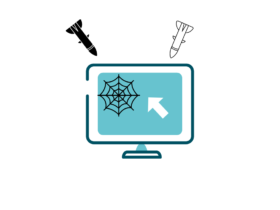What you don’t know and should know about the Russian app, FaceApp
Intro to the FaceApp
FaceApp has been with us since 2017, and it really raised in popularity the past years with its exceptional capability to make people look older or younger with jaw dropping accuracy than any other app in the market, and it was partly due to the powerful machine learning algorithms it used to create the altered face of the person. But as you may know the popularity slowly faded in the dust but only to make a return in 2020. And even back then the app raised many security concerns as it had access to all the photos shared with the app.
How did FaceApp make a return?
The app has made a return after 3 years of its launch with a new quirk of being able to change a person’s gender in photos with the same lifelike accuracy just like the age altering feature it originally got attention for. Since the pandemic has made everyone more dependent on their gadgets it wasn’t all that hard to take the attention of people and gain in popularity among people and their friends as it was a fun way to troll each other by posting it on social media.

The privacy concerns and what’s Faceapp’s Story?
But that’s not what we are really here to talk about, let’s look at the app itself and it’s less known creators, and the privacy concerns raised by the Russian app. The app is developed by Wireless Lab which is based in Russia, and let’s hear their part of the story first. As you may know FaceApp uses machine learning technology to create the stunningly accurate looking altered faces of people and this is done in their cloud, which means the photos are sent to them in order to make this happen. Which is a red flag right there as FaceApp has access to all these photos.
But now they have an updated privacy policy which looks convincing for the most part as the first two are highlighted which is enough to convince most users that their privacy is not in danger but as you keep reading it’s another story, is that enough to brush off the privacy concerns? Their previous privacy policy mentioned nothing about this which means they could use these faces they had access to to do as they desire.
And what you need to know about FaceApp?
Founder and now CEO of the company, Yaroslav Goncharov claims that the photos stay in their cloud only for a duration of 24 – 48 hours and are not shared with other authorities. They claim that the data is only collected to change the age or gender and to train the algorithm that can make this AI even more powerful, which is not something we can completely take for granted. And that is partly due to the fact that their previous privacy policy stated nothing about if they store the data or about sharing it with other authorities. And yeah, just deleting the app wouldn’t remove the images that you have already given away to the app and deleting these images from their end is a hassle on it’s own which is something to keep in mind.
Privacy concerns aside, just think of the possibilities an app like this can open, with internet scams on the rise being able to create artificial faces that cannot be identified makes it difficult for the person on the one end to determine if the person on the other end is legit or fake, which is a threat by itself. And with the number of underage users being exposed to this feature, the outcomes could be even bizarre. What’s worse? Anyone can just take your image from your profile on the internet and use FaceApp to make a non-existent FaceApp version of yourself and you would never know somebody did that which is not a problem that affects just FaceApp of course!
What to keep in mind?
So yeah, let’s take this situation to discuss the already existing issues we have with privacy concerns over the internet, let’s keep in mind the data we once give access to is not completely “gone” once you delete the app and even with privacy policies in place we never know who/what has access to our personal data, which makes the user responsible for one’s own data. Even with fancy privacy policies in place, with cyber attacks on the rise, if a hacker is able to break into the company’s security and get their hands on these data, we never know what the outcome could be.
So in the end, beware of what you share with the apps you use and what you share on the internet because once it’s shared the full control of the data is never in the hands of the user who shared it.
And do look at our interesting article on malwares and their types in our article on TYPES OF MALWARES










I agree
Hacking